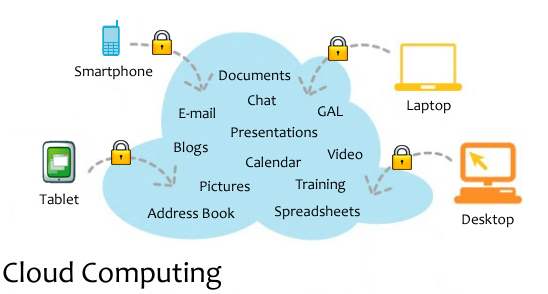To the casual observer, cloud computing may look like an obsession of a few people operating in high-tech industries, but this is far from the case.
A number of sectors not always associated with being on the cutting edge of IT have already embraced the cloud and are benefiting from it greatly. Here are just some of them.
Highlights of Contents
Accountancy
Rightly or wrongly, accountancy is viewed as one of the most boring sectors around, so it might surprise some people to learn it is one of the strongest proponents of cloud technology.
The company leading the way on this front is Sage, one of the world’s most successful accounting software firms and they have blazed a trail in providing cloud-based solutions for accountants everywhere.
The biggest benefit has been a simplification of the accounting process. The cloud has allowed accountancy firms and their clients to centralize all the documents they need to work. This means that there’s no more confusion over whether everyone has the latest version of something, and anyone with the correct credentials can access the documents without hassle.
Law
The legal sector is another that is often viewed a stuffy and stuck in its ways, but it too has been quick to release the benefits of the cloud.
Unlike accountancy, there isn’t really a standout provider of cloud services to the legal sector, and the complexities of the law profession mean there are stumbling blocks to widespread adoption.
Reliability and data security are big issues, as you might imagine but the flexibility offered by the cloud means that law firms are increasingly looking for ways to embrace the cloud while maintaining their other obligations.
Education
The world of education is perhaps more associated with technological advances than both law and accountancy. At the top level, the world of academia helps drive innovation, but the cloud is making an impact at all levels of education and its impact is being felt across the globe.
A Microsoft case study reveals that the Kentucky Department of Education has saved $6.3 million by embracing the cloud, while in China the cloud is being used to replace out-dated hardware while at the same time cutting costs.
Not only will the initiative allow Chinese authorities to save money on hardware, maintenance costs and power consumption will also be reduced. That’s money that can be spent on improving educational standards elsewhere.
Deployed properly, cloud computing could also improve education standards in remote areas, where access to schooling can be as much a geographical problem as a financial one.
Charities
Geography can also be a problem in the charitable sector. Global organisations may have several representatives in each continent, all of whom need to coordinate their activities with head office. Again, the cloud provides the perfect solution for this conundrum, allowing people to collaborate in real time without worrying about whether they’re working on an up to date document.
Then there’s the money – any savings a charity makes through cloud computing can, of course, be spent on the cause to which they are dedicated.
The benefits the cloud has to offer should be clear to everyone.


